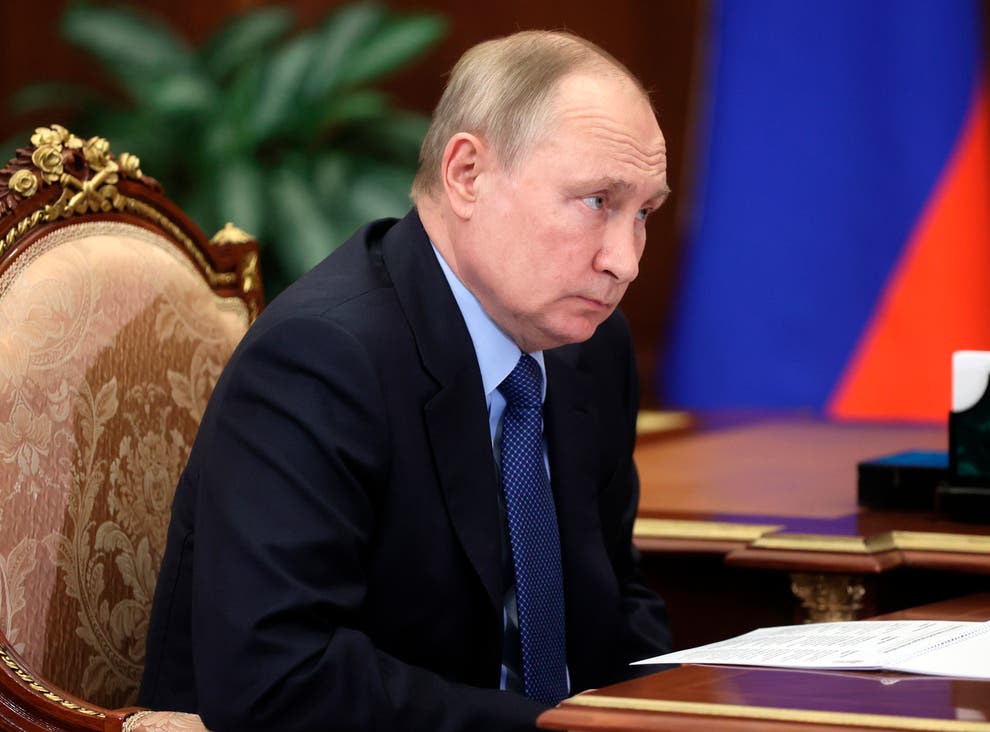
British Prime Minister Boris Johnson has outlined the retaliation Russia should expect if it launched an attack on Ukraine and stated that the UK “will not flinch now”.
In a comment piece in The Times, Mr Johnson insisted there was still reason for hope despite “the biggest military build-up in Europe since the Cold War”.
But he said Russian President Vladimir Putin could expect a three-pronged response from the UK “the moment the first toecap of the first Russian soldier crosses further into Ukraine’s sovereign territory”.
Mr Johnson said the US and Europe would impose than ever before and that these would be ready to be implemented at the first sign of an incursion.
“The government will ask Parliament for new powers to sanction a wider range of Russian individuals and entities, including any company linked to the Russian state or operating in a sector of strategic importance to the Kremlin,” he said.
Mr Johnson warned the Kremlin that “Nato allies are agreed that we are willing to send more forces to guarantee the security of our allies on the eastern flank”, including Latvia and Estonia.
He said the UK was preparing to reinforce the British-led Nato battle group in Estonia and was looking to increase its contribution to the Joint Expeditionary Force, a British-led formation comprising units from 10 Scandinavian and northern European countries.
Mr Johnson said that the government was considering sending Royal Air Force Typhoon fighter and Royal Navy warships to protect south-eastern Europe, with HMS Prince of Wales already the command ship of Nato’s Maritime High Readiness Force.
The final problem Mr Putin will face should he launch an invasion, said Mr Johnson, was that the West would be doing all it could to enable Ukraine to defend itself, noting that the UK’s Operation Orbital had already trained 22,000 Ukrainian troops and sent 2,000 anti-tank missiles.
During a meeting with Ukrainian President Volodymyr Zelenskiy last week, Mr Johnson pledged another £88 million ($119.1m) of UK aid to strengthen Ukraine’s energy independence.
He questioned the Kremlin’s reasons for boosting troop numbers along the Ukraine border.
“I struggle to understand how threatening Ukraine advances President Putin’s declared goals of keeping Nato forces away from Russia, dissuading any more countries from joining the alliance, and stopping its members from co-operating with Kiev,” Mr Johnson said.
“Nor could there be a more compelling argument for the necessity of Nato than the sight of Russian tanks invading a European country once again.
“I still believe that principled and determined diplomacy can defuse this crisis. Our fundamental belief, enshrined in the United Nations Charter and countless other binding agreements signed by Russia, is that every nation has a right to choose its sovereign destiny.
“We cannot reward — and therefore encourage — coercive diplomacy, so Russian de-escalation is the condition for successful dialogue.”
Mr Johnson said he had spoken twice to Mr Putin since December and that on both occasions he stressed the price Russia would pay for another assault on Ukraine, and how disastrously counter-productive it would be.
He stressed Britain’s respect for Russia and his belief that any of its concerns could be allayed by open and honest dialogue.
Mr Johnson concluded by emphasising the need for “patient diplomacy” while the UK further strengthened the unity of the West.
“Ukraine should overlook a peaceful and sovereign nation, able to choose its own destiny and seek its own alliances like any other independent state,” he said.


